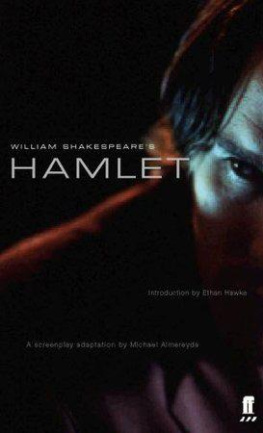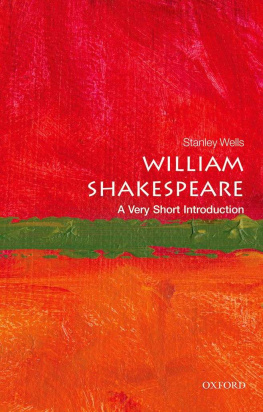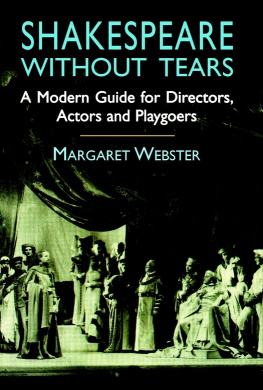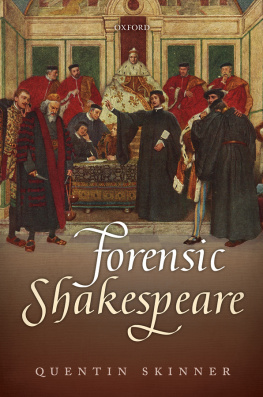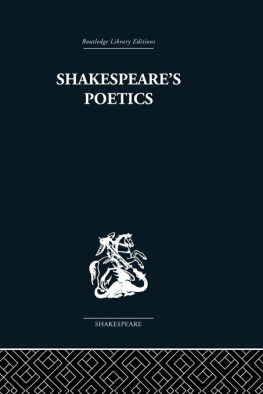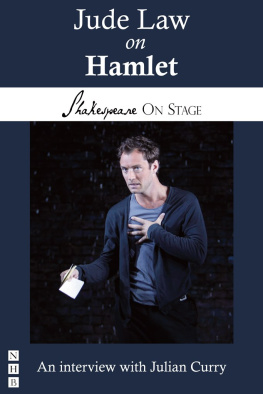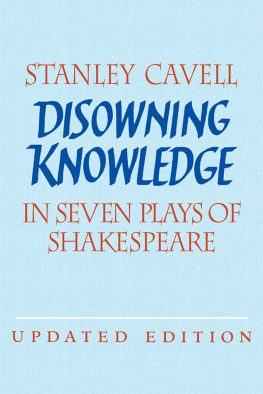Owning William Shakespeare
MATERIAL TEXTS
Series Editors
| Roger Chartier | Leah Price |
| Joseph Farrell | Peter Stallybrass |
| Anthony Grafton | Michael F. Suarez, S.J. |
A complete list of books in the series is
available from the publisher.
Owning
William Shakespeare
The Kings Men
and Their Intellectual Property
JAMES J. MARINO

Copyright 2011 University of Pennsylvania Press
All rights reserved. Except for brief quotations used for
purposes of review or scholarly citation, none of this book
may be reproduced in any form by any means without
written permission from the publisher.
Published by
University of Pennsylvania Press
Philadelphia, Pennsylvania 19104-4112
www.upenn.edu/pennpress
Printed in the United States of America on acid-free paper
10 9 8 7 6 5 4 3 2 1
Library of Congress Cataloging-in-Publication Data
Marino, James J.
Owning William Shakespeare : The Kings Men and their intellectual property / James J. Marino.
p. cm. (Material texts)
Includes bibliographical references and index.
ISBN 978-0-8122-4296-6 (hardcover : alk. paper)
1. Shakespeare, William, 15641616Stage historyTo 1625. 2. Shakespeare, William, 15641616Criticism, Textual. 3. Shakespeare, William, 15641616Authorship. 4. Intellectual propertyEnglandHistory16th century. 5. Intellectual propertyEnglandHistory17th century. 6. Transmission of textsEnglandHistory16th century. 7. Transmission of textsEnglandHistory17th century. 8. Kings Men (Theater company) 9. Chamberlains Men (Theater company) 10. Repertory theaterEnglandLondonHistory16th century. 11. Repertory theaterEnglandLondonHistory17th century. 12. Theatrical companiesEnglandLondonHistory16th century. 13. Theatrical companiesEnglandLondonHistory17th century. I. Title.
PR3095.M37 2011
792.9'5'09420931dc21
2010028881
CONTENTS

INTRODUCTION

I stand here for him.
Henry V, 2.4
Editors and Owners
The tradition of editing Shakespeare is as old as English copyright law, and they enter history together. Until the eighteenth century, printing rights were governed by the rules of Londons guild of booksellers, printers, and binders, the Worshipful Company of Stationers, and members of the company considered their copy, their right to republish books that they or their predecessors had published, both exclusive and perpetual. In 1709, as Parliament debated legislation that would set a finite term for exclusive copyrights and vest them in authors rather than in publishers, the bookseller Jacob Tonson devised a strategy to help maintain his perpetual control over the rights to Shakespeares plays. Tonson republished the collected plays, identified for the first time as the poets Works, including the first biography of Shakespeare and for the first time publicly citing an editor, Nicholas Rowe, who took responsibility for setting the text.of Shakespeare and Lewis Theobald owned Theobalds, and each of these editors authorial rights had in the due course of publication been assigned or franchised to their publisher, Jacob Tonson.
The Tonson publishing familys strategy of serial editions was only one part of the English publishing magnates long campaign to maintain perpetual copyright despite the letter of the law; the landmark Donaldson v. Becket decision did not break the great London publishers hold on their traditional properties until 1774. While Shakespeares works have themselves long since entered the public domain, the intellectual labor of setting a text creates a new and unique intellectual property that the editor legally owns and may therefore license or sell to a publishing firm. Shakespeare is public property. The Arden Shakespeare, The Oxford Shakespeare, The Riverside Shakespeare, The New Cambridge Shakespeare and all of their many marketplace competitors are private property. That no two editions of Hamlet are precisely alike may be a reflection of the plays textual difficulty, but it is also an economic necessity. An edition of Hamlet whose text was identical to anothers would be unpublishable. Shakespeares texts must be made new, again and again, in order to remain in print.
This basic fact of business has been a gift to learning in many ways and has required publishers to underwrite textual scholarship. As Andrew Murphy puts it, the series of eighteenth-century Tonson editions midwived the Birth of the Editor, and the evolution of editing as a discipline with its own clear theoretical underpinnings. Each editors need to distinguish his work from his forerunners led to explicit disagreements with earlier editors, formal statements of methodology, and vigorous critical debates between rival scholars. The third of Tonsons editors, Theobald, had a very public feud with Pope, the second, beginning soon after Popes edition was published; the tradition of controversy began early. By the time the Tonson cartel lost its exclusive hold, there was already a rich body of bibliographical scholarship for new editors to reckon with. Neither did increased marketplace competition weaken the proprietary imperative to reedit the text.
While editing Shakespeare is now almost exclusively the province of academics, the practice is not native to academia and long preceded the institution of English departments. Shakespeare was not edited by university professors until the 1860s, and so-called amateurs continued to advance and improve editorial scholarship well into the twentieth century. (Even common use of the term amateur to describe such editors is perverse, since amateurism is imagined here as not having a specific full-time occupation in another field.) Editing Shakespeare is far older than teaching Shakespeare, and older than any other form of Shakespeare scholarship except biography, which also began with Rowes edition. Scholarly editing, like literary biography, is a previously independent enterprise which was eventually subsumed into a larger set of academic pursuits; editing is in the English department but not of it. And while editing makes natural and invaluable contributions to the academys intellectual mission, it remains fundamentally oriented toward the imperatives of its original institution, the publishing house, rather than to those of the university.
Editings defining involvement with the press does not make it more commercial than the scholarly activities that evolved inside universities, or less serious, or more concerned with financial reward. Neither is there a substantial intellectual difference between editing Shakespeare for nonprofit publishers and editing for a commercial press. Editors do not compromise their scholarly principles for business reasons, most also practice other forms of literary criticism and scholarship, and all are engaged with the continuing research in their fields.
They themselves, being academics, are governed by the academys rules and customs. But the activity of editing remains conditioned by the needs of the press and focused on producing the very specific kind of intellectual product that publishers require. Editors who are also literature professors may successfully and even brilliantly serve more than one master, but the duty to establish a text is never omitted. It is the basic job description. Implicit in that duty is the obligation to provide a text which can legally be published and enjoy protection under the laws of copyright, an original edition sufficiently distinct from all those that have gone before it.
Next page


